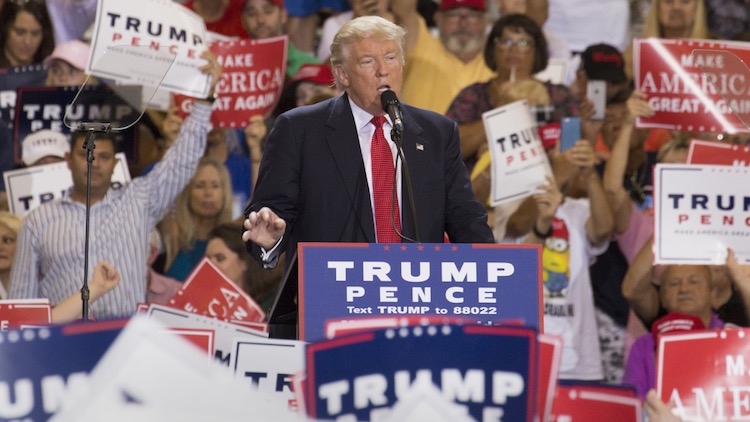Comey: FBI Is Investigating Russia, Trump Administration

The smarter way to stay on top of broadcasting and cable industry. Sign up below
You are now subscribed
Your newsletter sign-up was successful
FBI director James Comey confirmed Monday that as part of its counterintelligence mission, the FBI was investigating the Russian government's efforts to interfere in the U.S. presidential election, including "investigating the nature of any links between individuals associated with the Trump campaign and the Russian government and whether there was any coordination between the campaign and the Russian government's efforts."
He said that would include an assessment of whether any crimes were committed. Comey was testifying on alleged Russian interference in the U.S. presidential election at a hearing of the House Select Intelligence Committee.
Comey said he had been authorized by the Justice Department to say that much but could not elaborate, including on who might be being investigated.
He said he has briefed Congress in detail about the investigation but could not do so in public. He also said he could not say how long the investigation would take but would "follow the facts wherever they lead."
Comey said while it is agency policy not to confirm ongoing investigations, this was a special circumstance, and it would be in the public interest to do so.
Comey said the investigation began in late July but said it was impossible to say how long it would ultimately take.
Rep. Trey Gowdy (R-S.C.) pushed Comey on whether reporters could be charged with a felony for publishing the name of the subject of information collected by intelligence agencies, subject to a court order, and unlawfully leaked--in this instance Gen. Michael Flynn, former National Security Advisor. Comey would not weigh in, signaling that was still an open question, but in his experience that had not been the case.
Trey said the felonious dissemination of classified information is a crime.
Rep. Mike Turner (R-Ohio) asked what the government's responsibility is in correcting false information in the media. Comey said there was a whole lot being reported that was, indeed, wrong, but that the FBI can't correct incorrect reports on classified information because it would be giving information to the other side. He said he can't tell those news outlets what was wrong or why.
The smarter way to stay on top of broadcasting and cable industry. Sign up below
Contributing editor John Eggerton has been an editor and/or writer on media regulation, legislation and policy for over four decades, including covering the FCC, FTC, Congress, the major media trade associations, and the federal courts. In addition to Multichannel News and Broadcasting + Cable, his work has appeared in Radio World, TV Technology, TV Fax, This Week in Consumer Electronics, Variety and the Encyclopedia Britannica.

